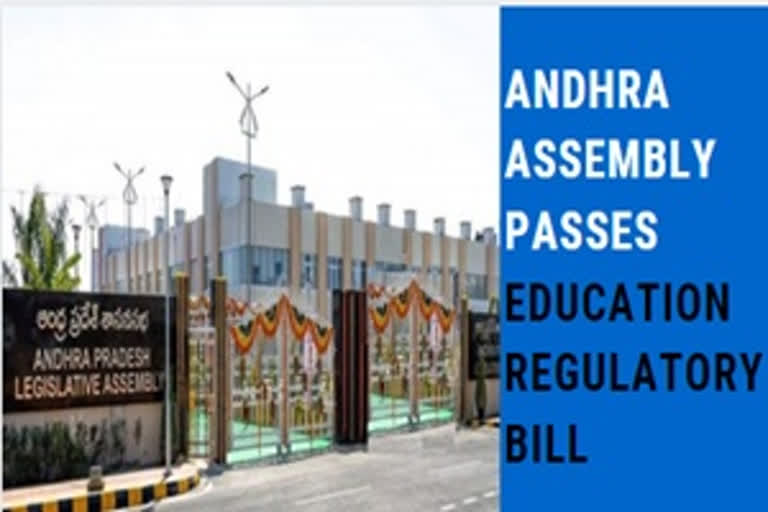Amaravati: The State Legislative Assembly on Thursday passed the Andhra Pradesh School Education Regulatory and Monitoring Commission (Amendment) Bill 2019 which aims at expanding the scope of regulating the fees structure and standards in junior colleges in private sector besides ensuring 25% reservations to poor students through a Commission.
Tabling the Bill, Education Minister Adimoolapu Suresh said that the Bill aims at regulating the standards, fees structure and reservations to poorer sections and bring in Junior Colleges also into the ambit of the Monitoring Commission, headed by a retired High Court Judge.
The Bill became necessary to check the commercialisation of education sector in the state, where private and corporate educational institutions have been charging huge amounts as fees in the name of coaching for EAMCET, IIT, NEET and other competitive exams along with the regular course in junior colleges which is adversely affecting the government schools and colleges.
The Bill also specifies that 25% of seats should be given to poor students free of cost under the Right to Education Act which will be checked by the Monitoring Commission and violation of this clause will attract punitive action, the Minister said.
The Commission will maintain standards of the Intermediate Education, regulation of fee, the competence of teachers, information disclosure, effective inspection, monitoring of Junior Colleges, and implementation of the provisions of Right to Education Act, punitive measures on defaulting junior colleges and to regulate all the matters pertaining to Intermediate Education.
The State has 3,339 junior colleges of which 2,014 are in the private sector while 471 are government junior colleges, 730 in the government sector and 124 are aided colleges. The number of students in Junior Colleges is 10, 64,127 and the teaching staff number is 37,941.
The Assembly has also passed two other bills by voice vote:
The Andhra Pradesh Charitable and Hindu Religious Institution and Endowments (Second Amendment ) Act 2019, which enables to review the number of Board members of Tirumala Tirupati Devasthanams (TTD).
The Andhra Pradesh Excise (Amendment) Act 2019 which enables the State to levy Retail Excise Tax, Additional Retail Excise tax, manufacture excise tax and levy any other tax.
Also Read: CAB 2019: Your language, culture will not be affected, PM assures Northeast



